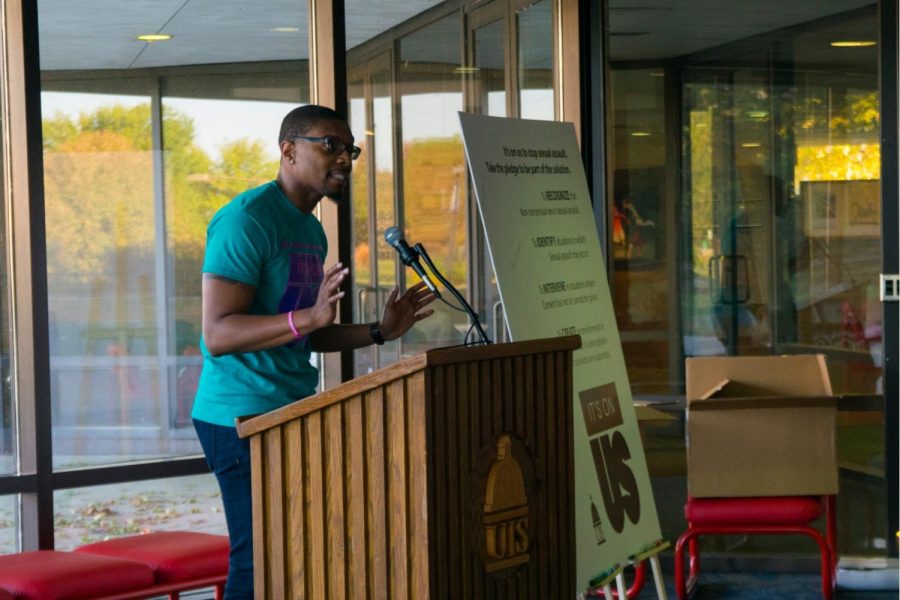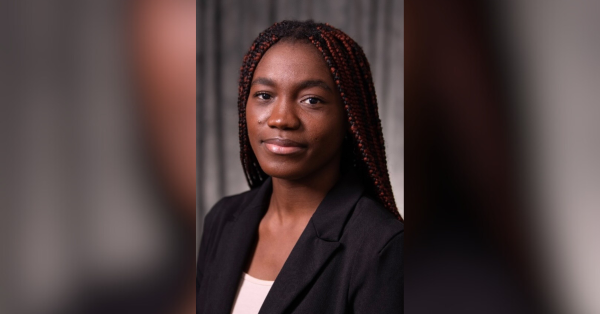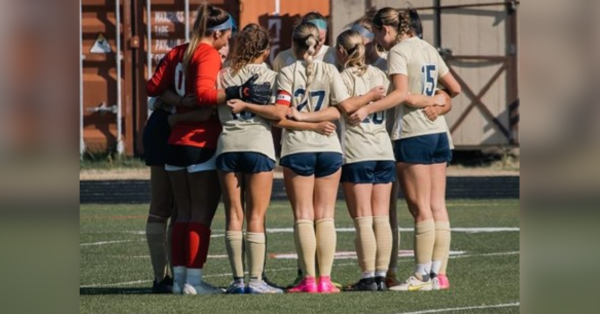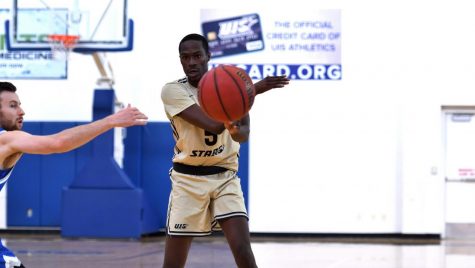“It’s On Us” Week of Action Kicks Off with Opening Ceremony
The Women’s Center and Diversity Center at the University of Illinois Springfield hosted an opening ceremony for the “It’s On Us” Week of Action on Monday, Oct. 22.
“It’s On Us” is a national initiative launched by former President Barack Obama’s White House Task Force to Prevent Sexual Assault. The program aims to help identify and intervene in instances of sexual violence, as well as create a supportive environment for victims of abuse.
Chancellor Susan Koch shared her personal connection to the cause with the audience gathered in the Public Affairs Center. According to Koch, we need more tools to address sexual assault on college campuses. She said the required online training for new students was an important step, but does not go far enough. “There have been many very distressing things that have occured on the national stage,” Koch said. “Despite that, we need UIS to be an island of safety.”
Vickie Smith, the event’s keynote speaker, is executive director of the Illinois Coalition Against Domestic Violence. Smith began working with victims of domestic violence 36 years ago. She started as a volunteer, housing women and children transitioning out of dangerous environments, before joining the ICADV.
After the Violence Against Women Act passed in 1994, Smith worked at the national level, assessing the efficacy of community resources. The value of the “It’s On Us” movement, Smith said, is its interconnective approach to sexual assault prevention. “We cannot wait for someone else to do something about domestic violence and sexual assault in our communities,” Smith said. “We all have a part to play.”
Over the course of her career, Smith said, she has seen domestic and sexual violence occur in all kinds of personal relationships–regardless of age, education level or LGBTQ+ status. Smith said abuse in relationships can not be blamed on anger management issues, substance abuse or mental illness. It happens simply because one individual decides they have the right to have power and control over the other. “It’s about choices over how we’re going to be in relationships with others,” Smith said.
Smith also dispelled the misconception that only insecure people end up in abusive relationships. Anyone can end up being coerced into an unhealthy environment and not realize it until the abuse gets bad, she said. “Perpetrators of domestic violence will use whatever tactics they need that work,” Smith said. “They’re very intentional. They’re very strategic.”
Smith added that the perception of victims as weak is also untrue. “What we see when we work with survivors is amazing strength and ingenuity and creativity in trying to be protective of themselves and their dependents,” she said. According to Smith, it is important to talk about domestic and sexual violence so that we can understand just how common it is. One in three women and one in seven men will experience some form of this abuse. Smith said the first and most important thing to do when someone confides an assault is to believe them.
The second step is to listen. “If someone is sharing some of their fears with you, it’s only the tip of the iceberg. There’s a whole lot more going on that maybe they even aren’t recognizing.”
Briyonnie Houston, a graduate assistant in the Diversity Center, said there’s steps all students, faculty and staff can take to make coming forward a safer experience. “The victims who are affected by this may not have the strength or the courage to say something,” Houston said. “We can come together as a campus, as a unit, to give these people the support they need.”
In addition to visiting the Women’s Center at UIS, victims of domestic and sexual violence also can call (877)863-6338, an Illinois hotline that operates 24/7 and can accomodate any language.












